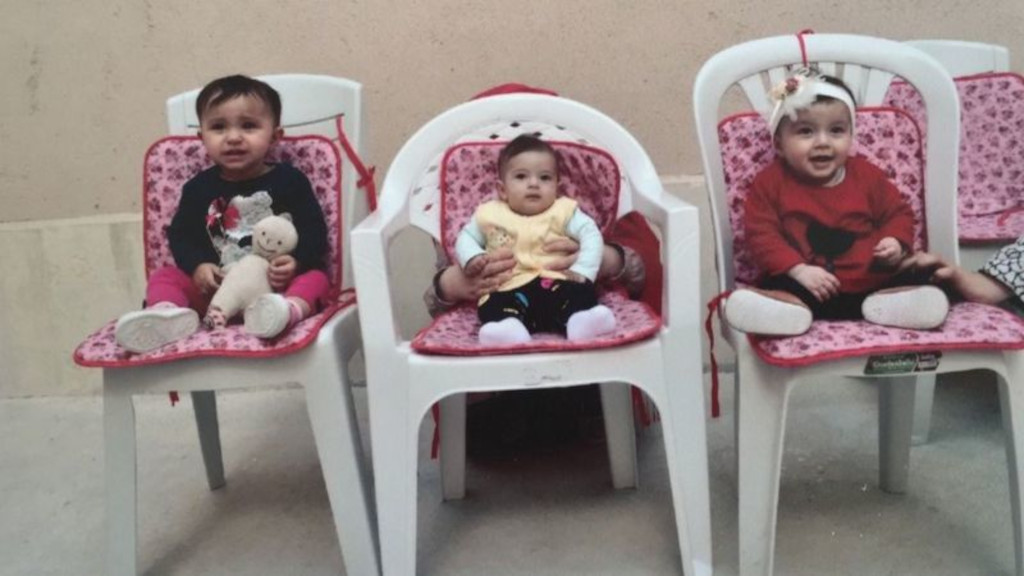Experts have criticized a promise made by the Turkish Ministry of Justice to build playgrounds for children accompanying their mothers in prison, saying children should not be in jail in the first place, the Stockholm Center for Freedom reported on Wednesday.
According to the Duvar news website Gülistan Kılıç Koçyiğit from the Peoples’ Democratic Party (HDP) submitted a parliamentary question asking why one-and-a half-year-old Arin Hevin was not allowed to have crayons. In response the ministry said it was due to COVID-19 restrictions and that they were working on building playgrounds.
“Due to the COVID-19 pandemic, some temporary measures were taken in accordance with the recommendations of the Ministry of Health,” the ministry said. “This was done in order to protect public health in penal facilities. Efforts are being made to provide age-appropriate toys, books and coloring books to children in prisons.”
The number of children accompanying their mothers in prison skyrocketed in Turkey in the aftermath of a coup attempt in July 2016.
According to reports there are a total of 345 children under the age of 6 accompanying their mothers in prison. Children are not well fed, do not receive sufficient medical care and have difficulty getting time to play, the reports say.
Cansu Şekerci, of the Civil Society in the Penal System (CISST), said the ministry’s efforts towards children in prisons lacked a pedagogical base. She said there were no standards in prisons when it came to providing childcare.
Considering the overcrowding in prisons, she requested that the ministry clarify how it would find the necessary space for playgrounds. She said the ministry had not given any details of their plan and was ambiguous about how they would build playgrounds.
“Prisons are so crowded that even recreational spaces are converted to wards,” said Şekerci. “How can they allocate space for children under these conditions?”
Şekerci also asked the ministry to clarify whether children would be allowed toys, and whether they would have unfettered access to the playgrounds. Şekerci added that currently prison administrations have a significant amount of authority over inmates.
“There is a lack of independent monitoring mechanisms, and prison and administrations have a lot of autonomy,” she said. “This is a problem as there are inadequacies in regulations aiming to protect the well-being of children as it is.”
Şekerci said children don’t belong in prisons and that the ministry should channel its efforts towards not imprisoning children. “There should be a discussion on how there can be alternative judicial measures for mothers with young children,” she added. However, until these measures are implemented, children should be given a safe and healthy place to play.
In a previous statement, Human Rights Foundation of Turkey (TİHV) Secretary-General Coşkun Üsterci said the courts need to take into account the economic and social conditions of mothers with children under 6. “Even at times when imprisonment is absolutely necessary, female inmates with children should be in prisons with special and better conditions where the children can be raised well,” he added.
According to the UN Committee on the Rights of the Children, “In cases where the parents or other primary caregivers commit an offence, alternatives to detention should be made available and applied on a case-by-case basis, with full consideration of the likely impacts of different sentences on the best interests of the affected child or children.”

